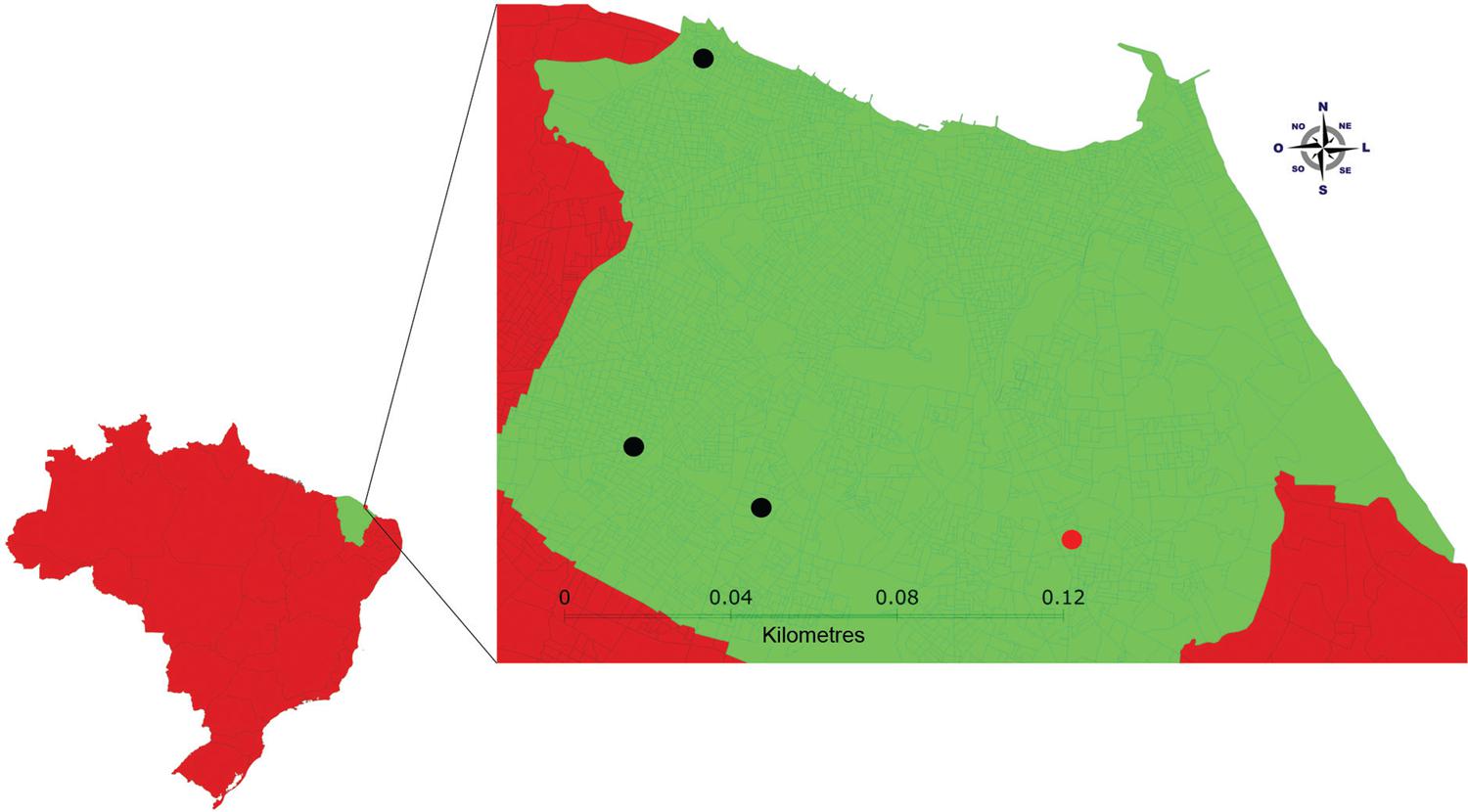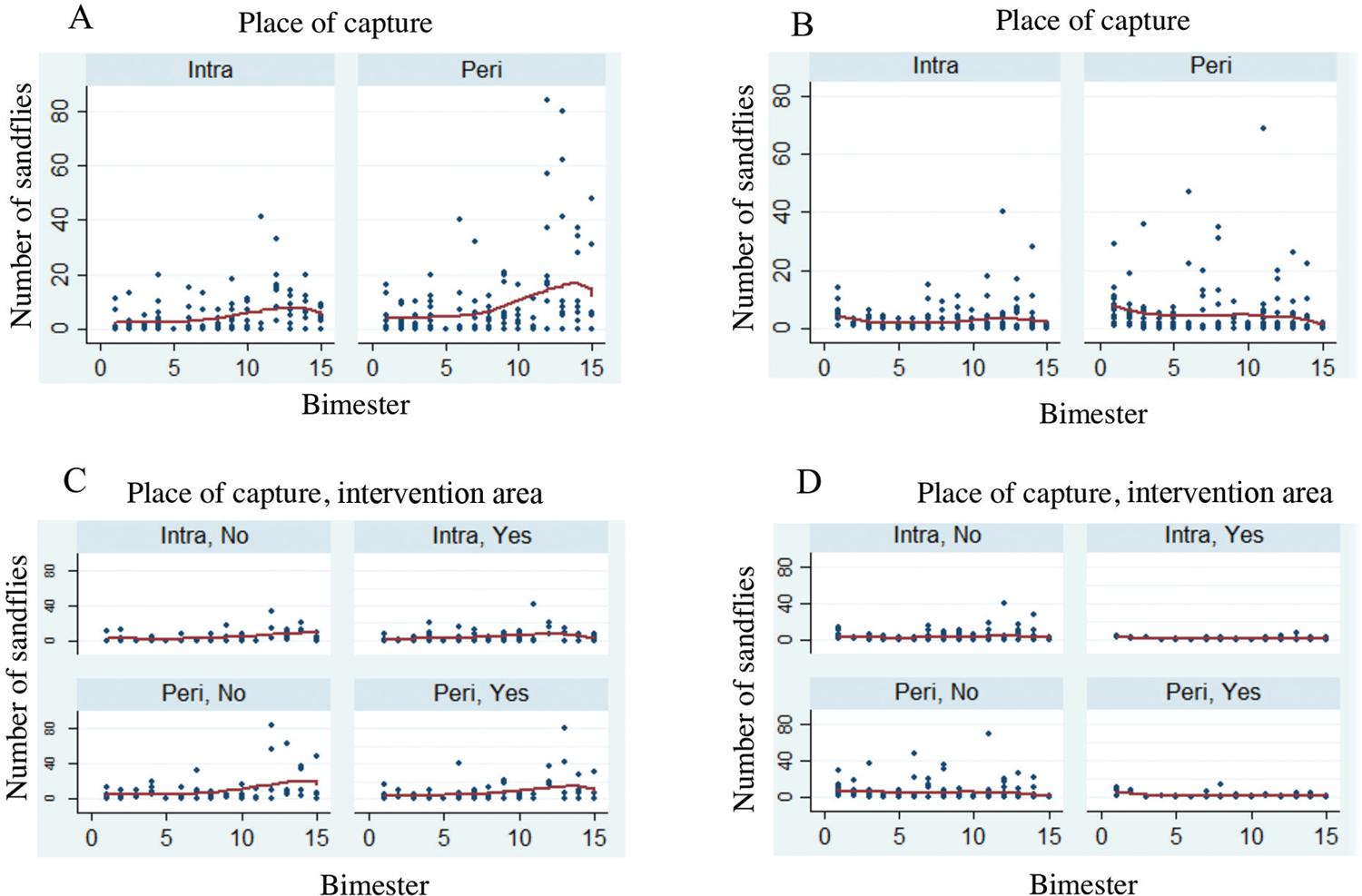BACKGROUND
There is little information on the effect of using deltamethrin-impregnated dog collars for the control of canine visceral leishmaniasis.
OBJECTIVES
The objective of this study was to evaluate the effectiveness of the use of 4% deltamethrin-impregnated collars (Scalibor®) in controlling visceral leishmaniasis in Lutzomyia longipalpis by comparing populations in intervention and non-intervention areas.
METHODS
Phlebotomine flies were captured over 30 months in four neighbourhoods with intense visceral leishmaniasis transmission in Fortaleza and Montes Claros. We calculated the rates of domicile infestation, relative abundance of Lu. longipalpis, and Lu. longipalpis distribution in each site, capture location (intra- and peridomestic locations) and area (intervention and non-intervention areas).
FINDINGS
In the control area in Fortaleza, the relative abundance of Lu. longipalpis was 415 specimens at each capture site, whereas in the intervention area it was 159.25; in Montes Claros, the relative abundance was 5,660 specimens per capture site in the control area, whereas in the intervention area it was 2,499.4. The use of dog collars was associated with a reduction in captured insects of 15% (p = 0.004) and 60% (p < 0.001) in Montes Claros and Fortaleza, respectively.
MAIN CONCLUSIONS
We observed a lower vector abundance in the intervention areas, suggesting an effect of the insecticide-impregnated collars.
visceral leishmaniasis; Lutzomyia longipalpis; impregnated collars; deltamethrin; dogs





